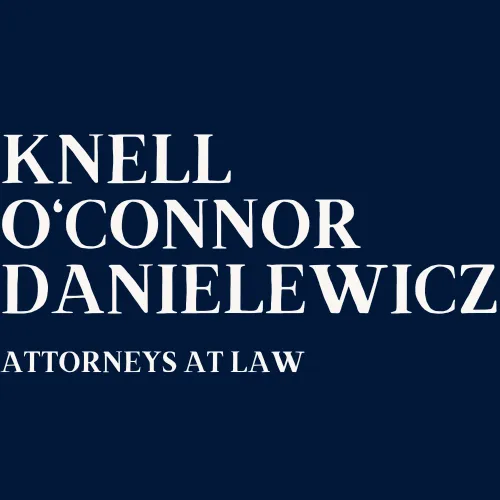Trial Result : Kenneth Tomky v. Majesky Auto Group
Case Name: Kenneth Tomky v. Majesky Auto Group
Venue: Chicago – Arbitrator Prieto
Handling Attorney: Bradley C. Knell and Andrew M. Fernandez
Case No.: 08WC 02822
Date of Accident/Death: 1/31/05
CASE SUMMARY BACKGROUND:
Kenneth Tomky, a Volkswagen mechanic for nearly 30 years, died in 2005 of Acute Myeloid Leukemia. Despite the fact that the Petitioner only worked nine months for the Respondent, opposing counsel claimed that the Petitioner’s AML was caused by benzene exposure that occurred at his workplace. Opposing counsel retained an expert to render an opinion that the workplace benzene exposure caused the Petitioner’s AML and his subsequent death. Potential death benefits exposure in this matter was $834,846.02 (present cash value at 3%). Furthermore, Respondent faced a potential significant medical subrogation exposure. It was our estimate that the medical bills paid by the Petitioner’s group was in the range of $200,000.00 plus.
FACTS AND LITIGATION STRATEGY:
The insured, Majesky Automotive, was bankrupt and the facility was shuttered when we assumed the defense of this matter in October of 2009. First, we tracked down the former owner/insured and gained access to the physical dealership facility. In the abandoned facility, we took evidentiary photos and we reviewed thousands of pages of documents to locate the Petitioner’s employment records, and to obtain documents regarding chemicals utilized in the dealership. Moreover, we located former employees in the service department and interviewed them, in which they clearly refuted a written statement provided by the Petitioner’s witness. Petitioner’s witness alleged that all of the mechanics were exposed to an “excessive amount of benzene on a daily basis”.
Secondly, we wrote to OSHA and the EPA and discovered that Majesky Auto was never cited for any workplace accidents, environmental hazards, or unsafe conditions.
Thirdly, we contacted Volkswagen of America, and we obtained MSDS sheets detailing chemical compositions of the chemicals that the Petitioner worked with during his tenure. Ultimately, review of over 12,000 pages of MSDS sheets showed no evidence of benzene in any of the chemicals.
We then reviewed and analyzed the Petitioner’s medical records from his family physician and the University of Chicago hospitals. In reviewing over 2,000 pages of medical records, nowhere did we find that any doctor provided the opinion that the Petitioner’s AML was a result of his job and/or benzene poisoning. In fact, none of the histories revealed any discussion of benzene exposure or risk.
Thereafter, we conducted extensive medical research into benzene poisoning and the possible link to leukemia. We discovered that while benzene exposure may lead to AML in large quantities over an extended time, there were several other possible causes, including a genetic susceptibility to AML. We also reviewed numerous scientific articles, and through this, we were able to identify experts who could refute the Petitioner’s toxicologist expert.
We retained Dr. Jerrold Leikin, a leading toxicologist who we had utilized in prior cases. After providing Dr. Leikin all of the noted records and meeting with him in person, Dr. Leikin provided us an opinion that within a reasonable degree of medical and toxicological certainty, “the Petitioner’s employment at Majesky Automotive did not play any role in the development of acute myelogenous leukemia”. Dr. Leikin’s opinions pointed out that the Petitioner experienced no symptoms of benzene poisoning, that no other workers complained of symptoms of benzene poisoning, and that there was no direct exposure to benzene. Dr. Leikin pointed out that Petitioner’s expert over-estimated benzene concentration in automobile gasoline and did not attempt to quantify any alleged benzene exposure.
We then tendered Dr. Leikin’s findings to opposing counsel, at which time we insisted on deposing opposing counsel’s expert. It was our impression that opposing counsel realized that her expert had no data to base his opinions upon and that the report of our expert was clearly stronger. Petitioner’s counsel made personal excuses for not being able to set depositions (i.e., back problems, seeing a chiropractor?), and she lowered her settlement demand from $650,000.00 to $250,000.00. Thereafter, her demand was dropped to $150,000.00.
Realizing that we had the upper hand in the negotiations of this matter, we offered $100,000.00 to settle this matter, and we stated that our demand would be lowered to $75,000.00 within a week. Moreover, we advised opposing counsel that we had retained an industrial hygienist expert to support Dr. Leikin’s findings.
Opposing counsel conferred with her client, and, likely realizing that she was losing her case, quickly accepted the $100,000.00 final offer.
SIGNIFICANCE:
From the onset, it appeared that the odds were against us. For over two years, a confident Petitioner’s counsel would not back off her demand of $650,000.00. While $100,000.00 is nothing to sneeze at, our principal made a careful “business” analysis in which their cost of litigation exposure, i.e., legal fees, expert fees, deposition, trial and appeal costs, would have been significant. Plus, given the liberal “tilt” of the IWCC and the reviewing courts, it might have been too risky to proceed to trial.
In conclusion, the savings to our client in this case was approximately $734,000.00 in potential trial exposure and $550,000.00 off Petitioner’s stubborn demands. We feel that the key to success in this matter was aggressively obtaining any and all of the records so our expert would have the opportunity to review them while Petitioner’s expert did not. By doing so, Petitioner’s counsel realized that all of the sudden, she had the uphill battle and that it was in her client’s best interest to settle.
© 2025 Knell O'Connor Danielewicz. All Rights Reserved
Knell O'Connor Danielewicz is licensed to practice law in Illinois.
Website Powered by Talmark Digital

